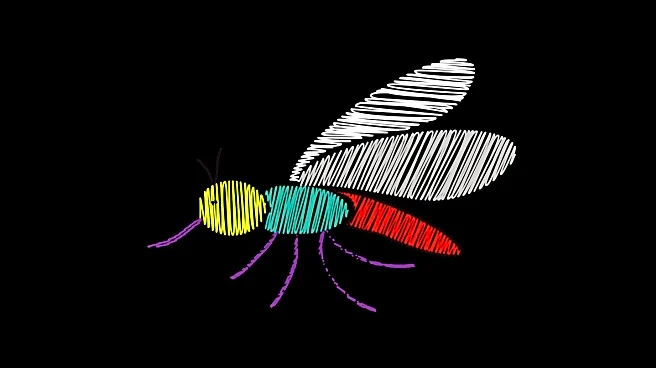What's Happening?
Health officials in Davis County, Utah, have confirmed the first fatality linked to the neuroinvasive form of West Nile Virus in the state for 2025. The Davis County Health Department reported three cases of West Nile Virus, two of which were neuroinvasive, resulting in hospitalization. One of these patients succumbed to the infection. According to Trevor Warner, spokesperson for the Davis County Health Department, while most people infected with West Nile Virus do not develop symptoms, the virus can cause mild to severe illness. Less than 1% of those infected develop the neuroinvasive form, which can lead to long-term complications or death. Symptoms typically appear within two to 14 days after a mosquito bite and can range from fever and headaches to severe symptoms like high fever, neck stiffness, and muscle weakness. Individuals over 60 or with weakened immune systems are at higher risk, though anyone can be affected.
Why It's Important?
The confirmation of a fatality due to West Nile Virus highlights the ongoing public health challenge posed by mosquito-borne diseases. This development underscores the need for increased awareness and preventive measures among Utah residents, particularly those at higher risk. The spread of the neuroinvasive form of the virus can lead to significant health complications, stressing the importance of public health advisories and individual precautions. The situation may prompt health departments to intensify mosquito control efforts and public education campaigns to mitigate the risk of further infections.
What's Next?
The Davis County Health Department is urging residents to take preventive measures against mosquito bites, such as using repellent and wearing protective clothing. The Utah Department of Health continues to monitor the situation, with 16 reported cases of West Nile Virus statewide, 13 of which are neuroinvasive. Health officials may increase surveillance and control measures to prevent further spread. Residents are advised to contact healthcare providers if they suspect infection and to eliminate standing water to reduce mosquito breeding.








